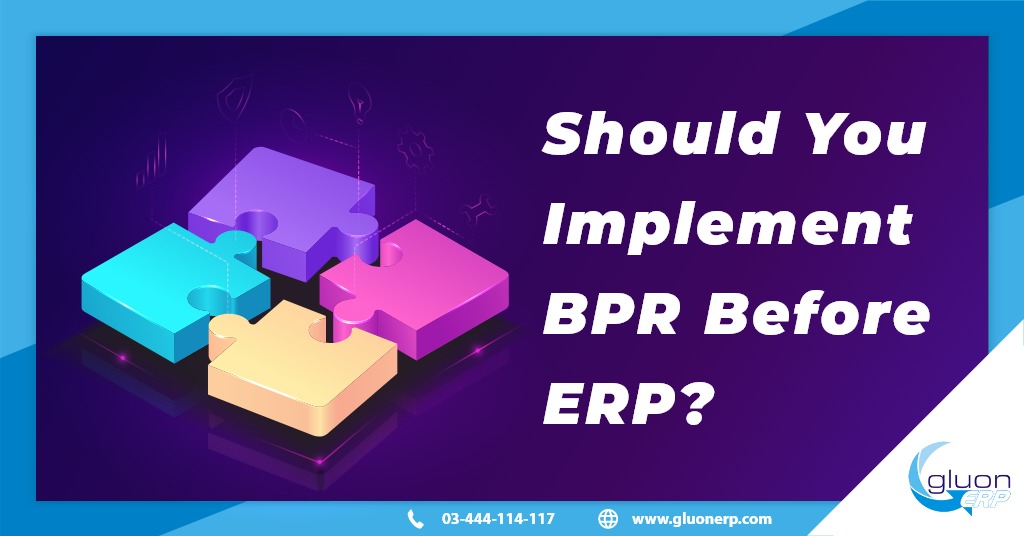
First, it is important to understand that implementing an ERP system to any business is a big step. Whether it is the first time, you are using the ERP software like gluon ERP, or you have an older version and are upgrading, it will not be easy to integrate a new system. There are a lot of steps you have to take and with caution, both before integration and after. After implementing the ERP, you need to maintain it by ensuring compliance and proper flow of processes. Now, the most important question is whether you should implement BPR before the ERP software, or not.
What is BPR?
BPR stands for Business Process Reengineering. It involves testing, redesigning business processes, and ensuring a proper workflow in the company. In other words, BPR refers to a set of activities that employees perform to achieve the goals of the business.
Now lets us get to the main question – is BPR important before implementing the new ERP system or not. Yes! It is important and not something that you should ignore. You cannot do this later; it has to be before implementing the ERP.
With proper BPR, you can plan the transition without losing existing data or causing chaos in the business processes. Moreover, it can prevent the risk of losing customers and going into losses.
Why BPR before ERP System
Here is a summary of the reason why you should implement BPR before ERP.
1. Competitive Advantage
Business Process Reengineering gives your company an edge over your competitor. Before implementing the ERP software, you need a lot of spreadsheets and reports. You need to sort out the data properly and manage them efficiently. Business processes will need proper and efficient management. Business process reengineering will make configuring the software based on the data better.
2. More Flexibility
An ERP system gives you and your employees’ flexibility. However, without a well-defined business process, and without proper and automated documentation protocols, managing flexibility can be difficult. By implementing BPR before the ERP system, you can maintain flexibility and make it better with the new software.
3. Realize Business Benefits Faster with BPR
Implementing the ERP system will come with benefits because it simplifies many processes. However, there will be numerous changes until the integration is successful. Without proper business process reengineering, you cannot systematically manage the changes to prevent the integration process from collapsing.
Therefore, before implementing the ERP system, you need to make a realistic understanding of all the processes and about how things work. For this, Business Process Reengineering is important before implementing ERP software. This will make implementation easier, faster, smoother, and less expensive, with a higher chance of success.




Comments